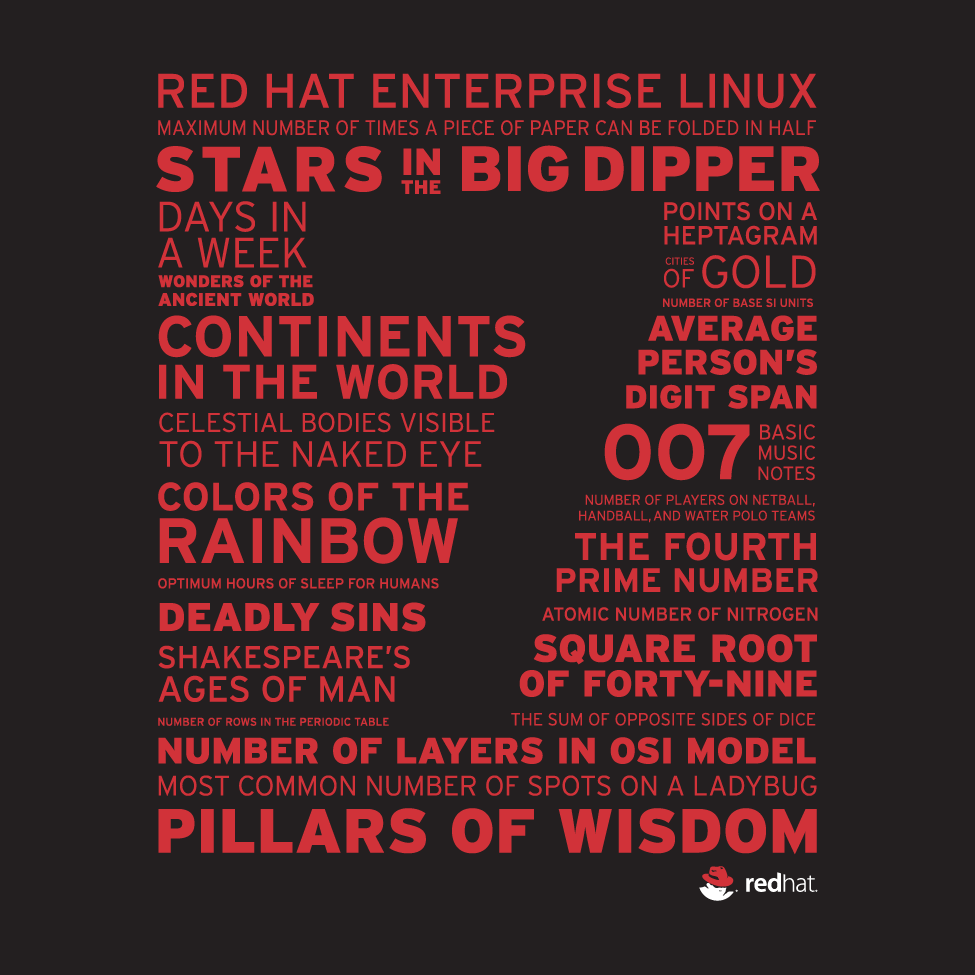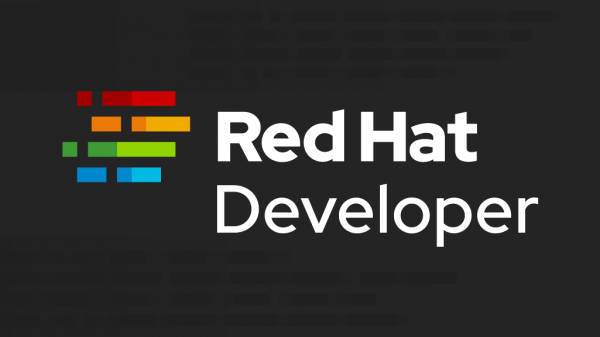|

Red Hat Enterprise Linux 7 offers customers agility and flexibility to meet new requirements head-on without increasing complexity—from rapidly delivering new applications via secure, lightweight containers, to scaling infrastructure, to meeting big data requirements with new and enhanced file systems. Key Red Hat Enterprise Linux 7 features to address future IT needs include:
- Enhanced application development, delivery, portability, and isolation through Linux containers—including Docker—across physical, virtual, and cloud deployments and development, test and production environments.
- Significant file system improvements, including XFS as the default file system, scaling to 500 TB.
- Cross-realm trust to easily enable secure access for Microsoft Active Directory users across Microsoft Windows and Red Hat Enterprise Linux domains, providing the flexibility for Red Hat Enterprise Linux to co-exist within heterogeneous datacenters.
- Powerful and secure application runtimes and development, delivery, and troubleshooting tools integrated into the platform and container-ready.
Read more about Red Hat Enterprise Linux 7.
If you have any questions or requests for topics, please reply to this email. Enjoy the articles, and happy coding.
The Red Hat Developer Relations Team
Learn more. Code More. Share More.
Featured Article - July 2014
Red Hat Enterprise Linux7 is for developers by Mike Guerette, Red Hat
Red Hat Enterprise Linux 7 is now GA, and so it’s time to write some code and/or port your applications to it. So let’s take a quick inventory of development tools, shall we?
With Red Hat Enterprise Linux, there are 2 primary sets of toolchains for you to use. First, there are base Red Hat Enterprise Linux 7 tools (like Red Hat Enterprise Linux 6) that will be supported with Red Hat Enterprise Linux 7 for 10 years (more below). Second, there are complementary tools in Red Hat Software Collections and Red Hat Developer Toolset that are updated fairly frequently (to keep up with the upstream) and are supported for 2-3 years, with major releases every 12-18 months.
Which to use, you ask? (Thank you for asking.) As a general rule, if you need your tools supported for 10 years, use the base Red Hat Enterprise Linux 7 tools. If you think you’ll want to a) update to newer versions of your tools at some point, b) want updated features, and/or c) want versions compatible with OpenShift cartridges, then go with Red Hat Software Collections. Read more.
Recent News
Red Hat to acquire eNovance, a leader in OpenStack integration services
Red Hat announced that it has signed a definitive agreement to acquire eNovance, a leading provider of open source cloud computing services. Combined with Red Hat's existing leadership in OpenStack®, the addition of eNovance's systems integration capabilities and engineering talent is aimed at meeting growing demand for enterprise OpenStack consulting, design, and deployment. Read the entire announcement.
Red Hat Software Collections 1.1 now GA
Red Hat Software Collections 1.1 was released, and includes support for: Red Hat Enterprise Linux 6 and 7, Ruby 2.0 and Rails 4.0, PHP 5.5, MongoDB 2.4, Apache HTTP Server 2.4, and Nginx 1.4.4 (Technology Preview). Read the press release for complete details.
DevNation 2014 – Video recordings now available
For those of you who couldn't attend DevNation 2014, video recordings of some of the presentations are now available. View the keynotes by Neal Ford and Gene Kim.
Some recent blog articles
We have another great selection of must-read articles this month:
How to bring DevOps to your enterprise with PaaS by Diane Mueller, Red Hat
Platform-as-a-Service (PaaS) enables your organization to embrace the DevOps approach to application life cycle management. The agility that PaaS brings to enterprise clouds enables developers to rapidly iterate on ideas, test them out, scale, fail, and pivot. The more ideas you can test, the more lessons learned. Hopefully, each new foray germinates into “good ideas” and successful initiatives. Read more.
Yeoman serves up a real M.E.A.N. stack on OpenShift by Ryan Jarvinen, Red Hat
Unless you attended MongoDB World in New York City, on June 24-25, you may not be aware of the M.E.A.N. stack that's made up of MongoDB, Express, Angular.js, and Node.js. OpenShift evangelist, Ryan Jarvinen, does a great job summarizing a quick setup of a MEAN stack on OpenShift. Read the article.
Gene Kim and Red Hat IT part 1: Getting DevOps off the ground by Gene Kim and Red Hat's Bill Montgomery
Red Hat's IT Inception team, responsible for DevOps in Red Hat IT, is interviewed by Gene Kim, DevOps expert and author of The Phoenix Project, a novel (yes, it is a novel and definitely worth reading) about DevOps. This 4-part article will be helpful in comparing how your own DevOps project is faring. Read part 1.
More Red Hat blogs and resources
If you're not aware of it, Red Hat has a developer blog: https://developers.redhat.com/blog/. Be sure to visit it often to get the latest technical scoop on all sorts of developer-related topics.
If you'd like to track more focused blogs, see these 2 popular ones for JBoss and OpenShift. In addition, there's JBoss Weekly to keep in touch with recent events related to the Red Hat JBoss Middleware portfolio.
Upcoming events and webinars
Find Red Hat and Red Hatters at these upcoming events:
OSCON, July 20-24, Portland, OR, USA
Open Source Convention. Look for Red Hat at this convention to talk about JBoss, OpenShift, OpenStack, and application development. There are a number of Red Hat speakers too.
EuroPython, July 21-27, Berlin, Germany
Red Hat is sponsoring EuroPython, the biggest Python event in EMEA. Come talk to our Pythonistas at our exhibit table.
WDCNZ 2014, July 31, Wellington, New Zealand
Join Red Hat's Katie Miller at WDCNZ 2014 in Wellington, New Zealand. She will be giving her talk, "Coder decoder: Functional programmer lingo explained, with pictures."
JavaOne, Sept 28, San Francisco, CA, USA
Red Hat is again sponsoring JavaOne, the world's largest Java conference. Be sure to visit the Red Hat booth and talk to our Java and JBoss experts.
tiConf, June 28-29, 2014, Amsterdam
Titanium Developers Conference. Marek Jelen will present his keynote on scaling your mobile back-end, and tell you how to deal with the demands of mobile users for a great user experience. This hands-on technical talk will show how to deploy an application to the cloud, and then turn up the heat with the right mix of elasticity and auto-scaling.
A listing of additional events is also available for JBoss and OpenShift.
If you'd like to automatically receive this monthly newsletter, sign up here.
|


